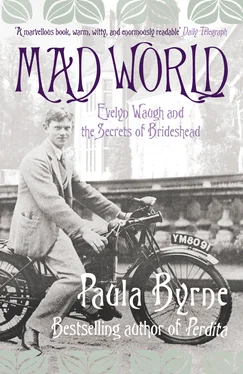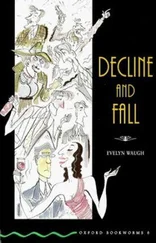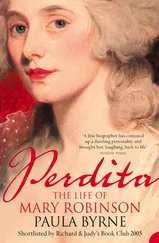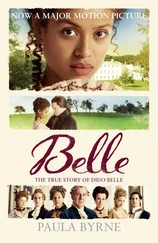The children tended to be dressed shabbily in hand-me-downs from cousins. Their clothes were threadbare and when they were abroad they were mistaken for charity children, which was a source of great amusement. They were encouraged to be stoical in times of illness. Doctor’s orders were that champagne was the best cure for all ailments.
Each of the children had their own nursemaid. In their early years they were schooled in the nursery on the ground floor, a spacious room with five-barred sash windows. This was Nanny’s domain. Hugh’s schoolroom chair was painted blue with forget-me-nots, Maimie’s green with snowdrops and Coote’s grey with orange blossom. A succession of governesses came and went, with alarming frequency, and included one who taught the children to play Six-Pack Bezique, another called Miss Bryan who always used the word ‘deleterious’ without really understanding what it meant, and a Swiss woman called Mademoiselle Jenny who was terrified of cows (‘so we used to get in a field and drive all the cows at her’).
The children spent their time making fun behind the adults’ backs, speaking in their nursery patois, and inventing a secret language called ‘Iggy Piggy’, which involved ‘putting an egg behind every vowel’. In later life the girls expressed resentment at their mother’s seeming indifference to their needs. Lady Sibell was left-handed but was forced by the governess to write with her right hand. Coote, the youngest girl, was constantly slapped because she had difficulty in reading. In the end, her nanny begged Lady Beauchamp to take the girl to have her eyes tested. Coote was found to be extremely short-sighted and was prescribed thick spectacles. When Maimie contracted measles and she was forbidden contact with her siblings, her diary noted that it was her father who came to her room to read to her whilst she was in quarantine.
Hugh, adored by the sisters on account of his sweet nature, was not an academically gifted child. He preferred to spend time with his beloved horses. Boom despaired of his second son’s philistinism, but appreciated his warm, sensitive nature. Hugh, unlike his brother, Lord Elmley, was entirely without pretension and airs. Everyone loved him. Blond and blue-eyed, he was a beautiful young boy with delicate features, though his father’s insistence on physical exercise made him strong and robust.
The Lygon children were extremely close to each other, united in their dislike of their mother and adulation of their father. For all the formality of its aristocratic customs and the sanctity of its religious rituals, Madresfield brimmed with vitality and a sense of community. It was a very different place from Evelyn Waugh’s Underhill.
Evelyn’s day school, Heath Mount, was within walking distance of his home in Golders Green. It was a secure and pleasant environment. A clever and imaginative boy, he was a favourite of the headmaster, Mr Granville Grenfell (‘a name which would seem implausible in fiction’). Being a favourite did not stop him fantasising that the remains of the Head’s deceased wife were hidden in a locked chamber.
Evelyn loved his prep school and, looking back, realised how lucky he was: ‘When I read the accounts of my contemporaries of the enormities enacted at their preparatory school both by masters and boys, I admit that Heath Mount ‘‘had a good tone’’’ – though it could not be denied that some of the masters ‘liked little boys too little and some too much’. There was a tendency to fondle the boys ‘in a manner just short of indecency, smacking us and pulling our hair in a manner well short of cruelty’. Evelyn himself was capable of bullying tendencies. He picked on a small and beautiful boy called Cecil Beaton: ‘the tears on his long eyelashes used to provoke the sadism of youth’.
Even at a tender age, Evelyn was attracted to seemingly glamorous and sophisticated friends. ‘I was early drawn to panache,’ he declared, recalling the sangfroid and the louche lifestyle of a little rich boy whose nanny would stand in attendance at football games in order to refresh him with lemon squash from a flask. At the cinema (which Evelyn adored), the rich boy regaled his lowly friend with filthy schoolboy jokes and lurid tales of the private lives of actresses. In return, Evelyn, who was going through a pious phase, tried to interest his friend in Anglo-Catholicism. High Church rituals had captivated him at the age of eleven. His friend, however, had more worldly things on his mind.
Waugh edited a school magazine called The Cynic . He collected war relics from the Western Front: bits of shrapnel, shell cases and a German helmet. Academic work was less of a concern. As a day school, Heath Mount did not set its sights at all high. It was not like the boarding schools that existed to feed the great public schools. Heath Mount accordingly provided insufficient preparation ‘for the endurances of adolescence’. Waugh later claimed that if he had been sent to a better prep school, he would have been clever enough to win a scholarship to Eton or Winchester. The assumption was that he would go to Sherborne: his father’s school and his brother’s, a very respectable destination, if not in the top rank beside Eton, Harrow and the rest.
In 1912, nine-year-old Lord Elmley was sent to prep school. His younger brother Hugh followed him there two years later, just after the war began. The school was a new establishment called West Downs, just outside Winchester. Owned and run by a Wykehamist called Lionel Helbert, who had previously been a House of Commons clerk, it was a small, friendly place in which the boys were treated with great care and affection. Beatings were frowned upon. The boys wore knickerbocker suits on weekdays in winter and grey flannels in summer. Sunday best was Eton suits and top hats. L. H., as Helbert was known, always took a walk after morning chapel, wearing a morning coat, and linking arms with the boys. On Sunday afternoons in summer he read stories of derring-do to the pupils out of doors, while they ate bananas and ginger biscuits.
As an Oxford undergraduate, Helbert had been very keen on drama and music. The hall in the new building at West Downs was called ‘Shakespeare’ and putting on plays was always a major part of school life – boys would be cross-dressed for The Taming of the Shrew and one appeared with a sheet over his head as the ghost in Hamlet . Madame Calviou, the French mistress, took charge of plays in French. Here Hugh’s acting talents had their first opportunity to shine.
As at all English prep schools, sport was equally important, especially cricket. Sports Day, attended by parents who had to be addressed as ‘Mother’ and ‘Father’, was a highlight of the year, as was ‘Founder’s Day’, L. H.’s birthday, when he gave the whole school a break in the countryside. They would load up carts with picnics, and go up onto the downs or further afield.
The war was the constant shadow over Hugh’s prep school days. Many West Downs old boys were serving in the Army or Navy and the news of each death was felt by Helbert as a personal blow. The masters, too, were going off to the Western Front, leaving L. H. to shoulder the whole burden of the school himself. He felt that he must prepare the younger generation to go out and serve as soon as they were old enough. He therefore took up Scouting with great enthusiasm. The school was divided into five patrols and the West Downs boys could be seen in pairs going into the town on Scout duties, once even to London with a message for the War Office. Among Hugh’s contemporaries were the sons of a general, who wrote vivid letters from the front. These were read aloud to the entire school at Scouting pow-wows. Outside the school chapel, where prayers were said every morning and evening, Helbert put up a notice in large letters under the heading ‘Keep on Hopin’’:
Читать дальше












